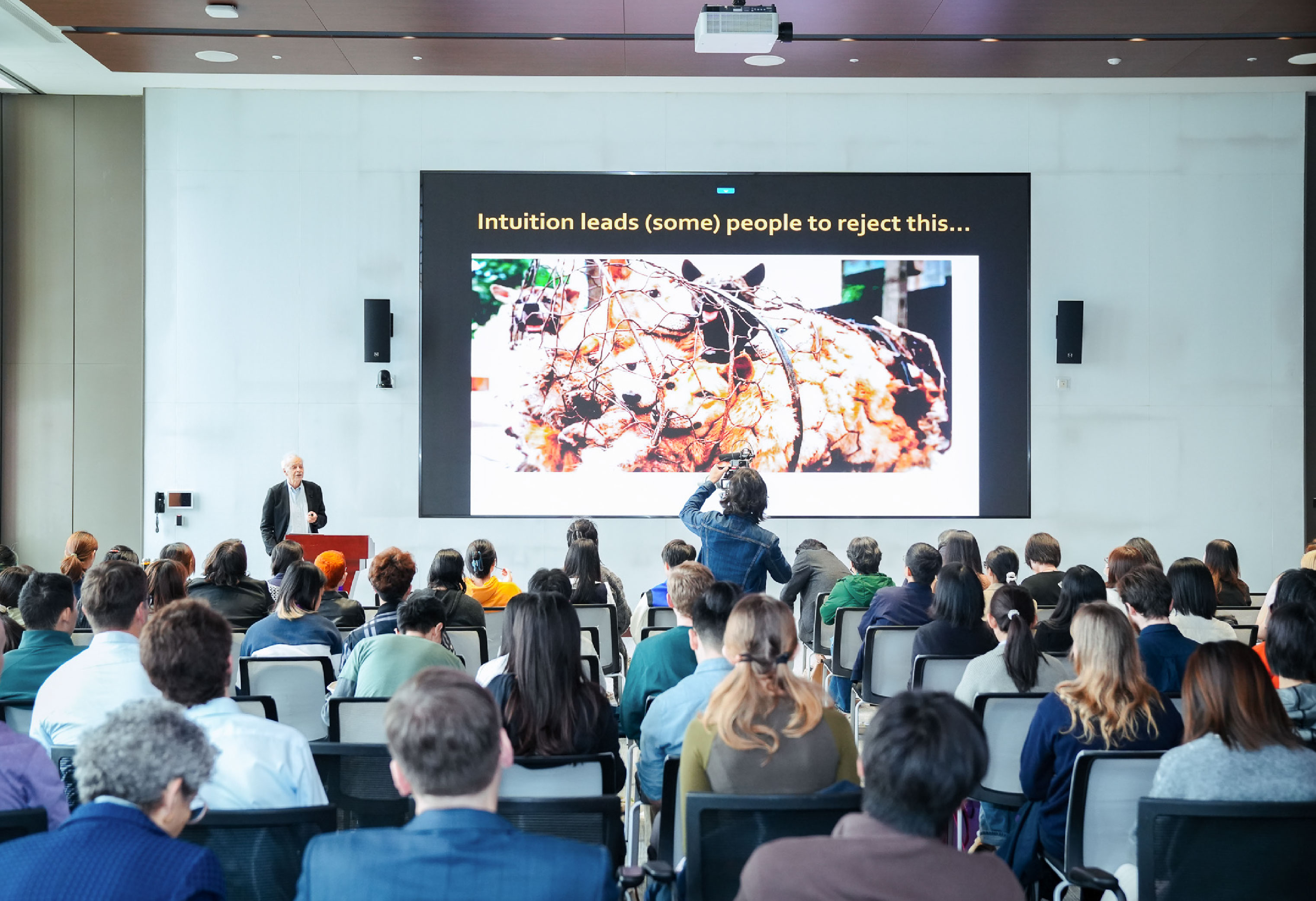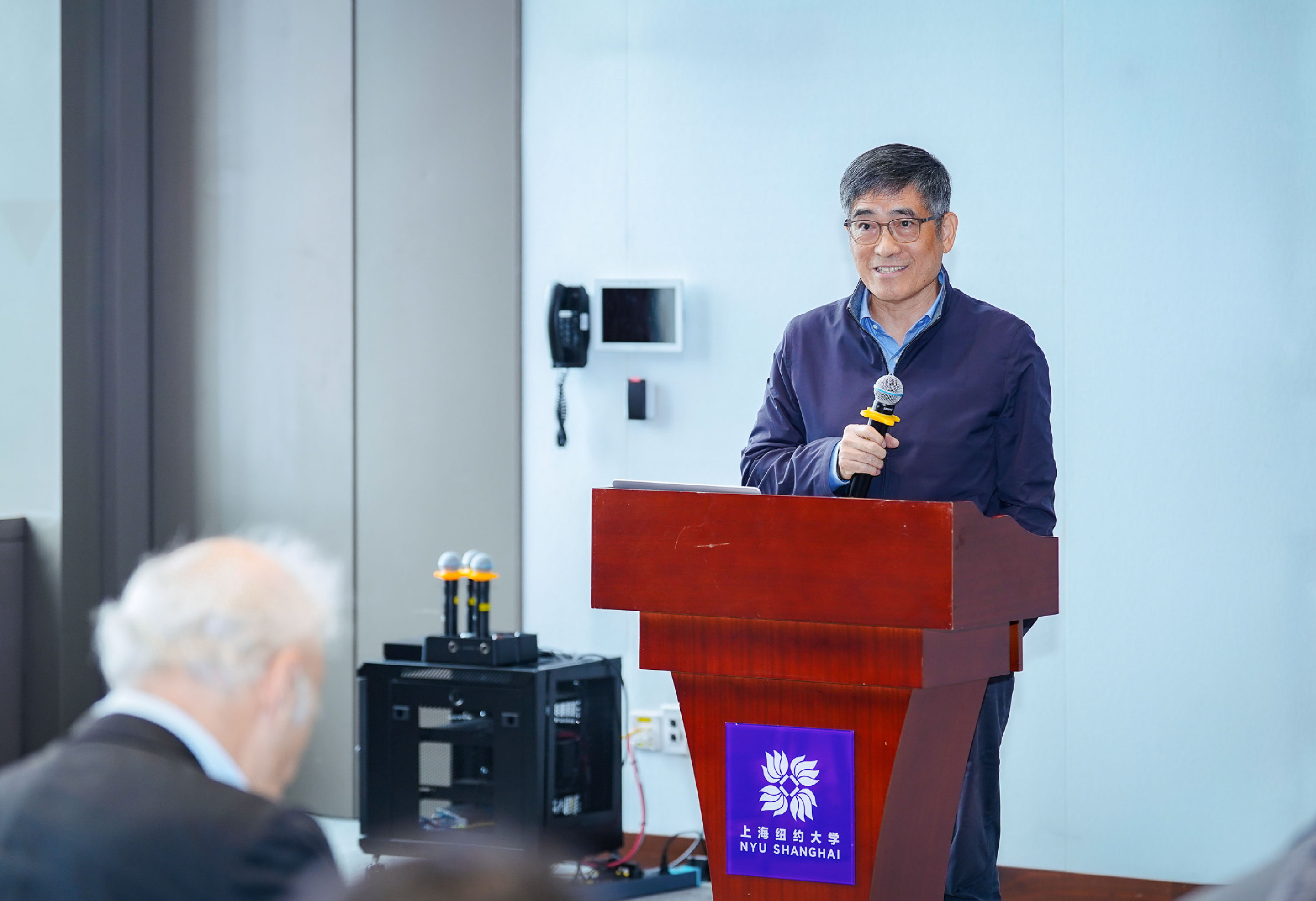On October 28, philosopher and bioethicist Peter Singer engaged the NYU Shanghai community in a thought-provoking conversation on moral philosophy, animal ethics, and multi-species care. The talk was accompanied by a vegan lunch for attendees.
“The ethics of what we eat is something often neglected,” said Professor Singer, in his introduction of eating as a moral issue.“But I would argue that eating [meat] has caused a lot more harm and suffering.”
Renowned for his influential works, Animal Liberation (1975), which propelled the modern animal rights movement, and The Life You Can Save (2009), advocating for global poverty alleviation, Professor Singer is the Emeritus Ira W. DeCamp Professor of Bioethics at Princeton University. His talk at NYU Shanghai was part of a three-week tour in China, during which he delivered approximately 20 lectures at leading universities on topics ranging from the foundations and applications of utilitarianism to the moral status of animals and the ethics of our food choices.

Professor Singer began his presentation by challenging speciesism and advocating for equal consideration of the differing interests of various species. He highlighted that an estimated 200 billion vertebrate animals are slaughtered for human consumption each year, according to the UN FAO, not including fish. He raised urgent concerns about the cruelty of factory farming, showing images of livestock conditions. He also discussed the significant environmental impact of the meat and dairy industries, particularly due to methane emissions from ruminant animals, which contribute to the ongoing crisis of global warming. Many attendees were surprised to learn that soybeans and rice contain more usable protein than meat. For those who find adopting a vegan diet challenging, Professor Singer suggested becoming “effective reducetarians,” reducing their consumption of animal products to mitigate harm.
Following his presentation, Chancellor Tong Shijun, also a philosopher specializing in ethics and moral philosophy, posed several questions referencing both Western and Chinese philosophical minds – from American psychologist Michael Tomasello’s The Cultural Origins of Human Cognition, to Neo-Confucian philosopher Wang Yangming’s “Inquiry on the Great Learning.” “Would a non-utilitarian justification for human obligations for animals utilitarianly be more reasonable?” “How do you view scientific discoveries that emphasize the distinctive features of Homo sapiens, rather than highlighting the moral continuity between humans and non-human animals?” Chancellor Tong asked.

In response, Professor Singer acknowledged the significance of language and recognized language as a distinct human trait, while emphasizing our shared experiences with other animals.
“We recognize those commonalities, for example, the distress of a cow separated from her calf, as we know the distress of a mother who is forcibly separated from her young child,” Singer said. “And I think those commonalities are enough reason to say that the way we are treating animals in vast numbers for purposes that are not necessary for us to live and to live well is simply wrong.”
Assistant Professor of Environmental Studies Yifei Li, who organized the event, said it was a unique opportunity for students. “Professor Singer’s work reached beyond academia and became the intellectual genesis for a worldwide movement to change our diet, to change how we relate to animals, to change what we eat, based on understanding of our moral responsibilities,” said Li. “China really is a weighty country in that overall consideration of animal welfare and the relationships of that to the stuff that we eat. So getting the next generation involved in that and potentially even be part of the conversation and then changing the world is just quite important.”


